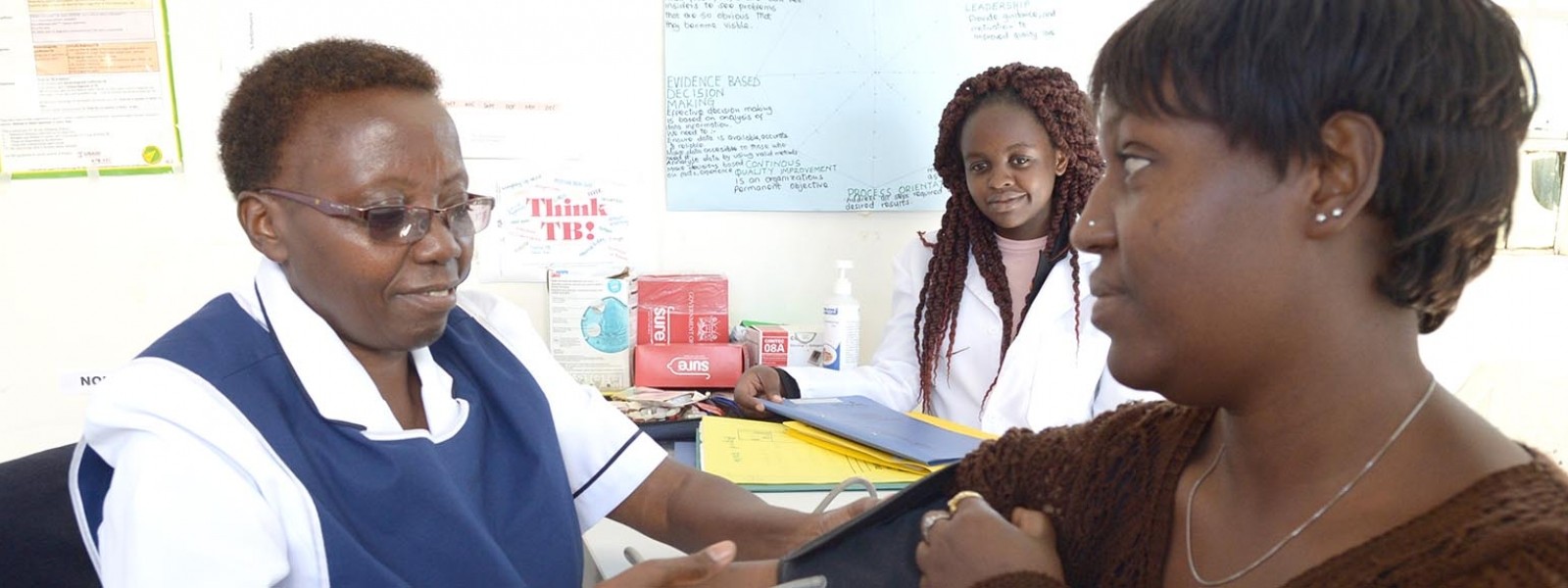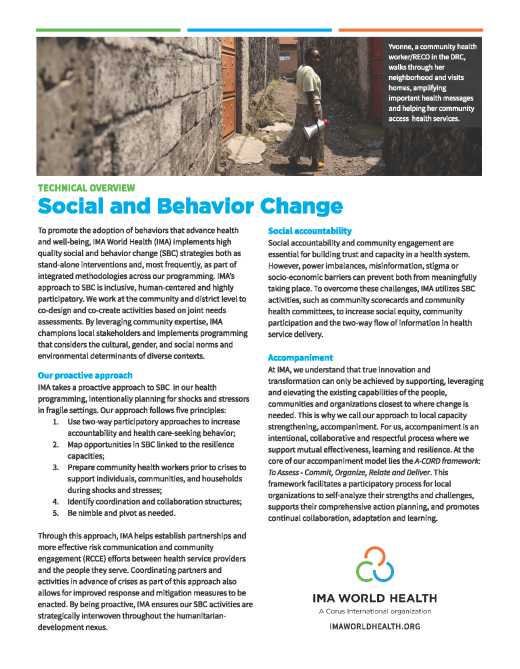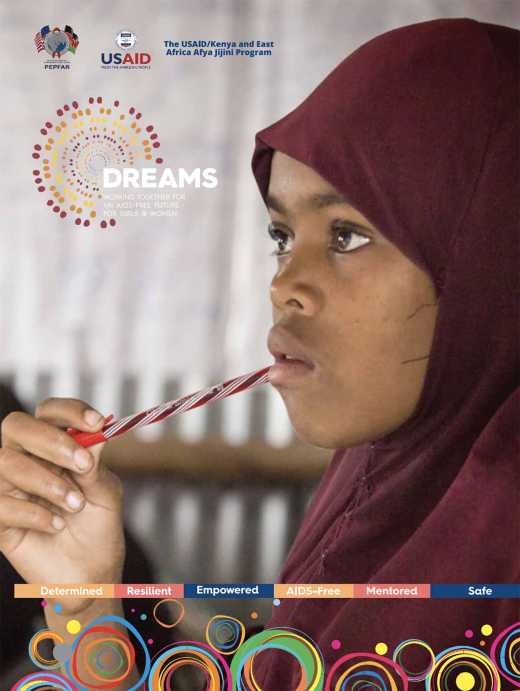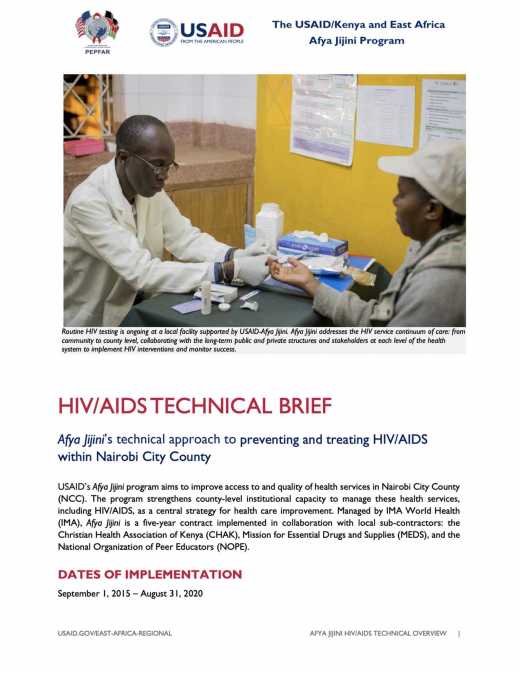CONTRIBUTING TO AN AIDS-FREE GENERATION
OUR PROJECTS
USAID/Kenya and East Africa Afya Jijini: The USAID/Kenya and East Africa Afya Jijini program works to increase access to and use of quality health services—especially HIV and AIDS testing and treatment services—in Nairobi City County, which has one of the highest HIV burdens in Kenya. Young women participating in the DREAMS component receive access to HIV testing services, reproductive health and family planning counseling, vocational and income diversification training and more to empower healthy choices, resilience and opportunity.
USAID-IMA World Health Counter-Gender Based Violence: As part of the broader USAID-funded response to sexual and gender-based violence in eastern regions of the DRC, IMA provides post-exposure prophylaxis, or PEP kits, to health facilities and trains health workers how to administer them to survivors of rape for HIV prevention.
AIDSFree: As part of a USAID-funded global Strengthening High Impact Interventions for an AIDS-Free Generation Project, IMA partners with the Christian Health Association of Kenya to implement a novel approach to engage religious leaders to expand the demand in uptake of pediatric HIV services in Nairobi. The approach builds the capacity of religious leaders to influence community and individual behaviors towards pediatric HIV and AIDS, and to increase use of care and treatment services. Together, IMA and CHAK have developed guides for religious leaders on pediatric HIV and have trained religious leaders on pediatric HIV as a technical area. As a result, 84 percent of the 1,950 completed referrals for HIV support services in 2017 were from religious leaders—proof that empowered faith leaders can be more effective at generating referrals than community health workers in some communities.
In Dedza, Malawi, IMA has mobilized a group of faith leaders through AIDSFree to educate their community members on prevention of mother-to-child transmission of HIV and to encourage healthy behaviors and use of PMTCT services. One of the key goals is to build the capacity of our partner MANERELA+, the Malawi Network of Religious Leaders living with HIV/AIDS, to engage with faith communities to influence these health-seeking behaviors. In 2018, IMA worked with religious leaders to develop contextually appropriate “key messages” on PMTCT and trained them on how to deliver them. The faith leaders then promoted the key messages during awareness campaigns, couples counseling, youth forums, couple symposiums, mothers group meetings, male champion group meetings, and worship services at their church or mosque—reaching 11,333 people in total.
Cervical Cancer Prevention and Control: Cervical cancer is the deadliest cancer for women in Tanzania, and being HIV positive increases the risk of developing cervical cancer by at least half and hastens onset of the disease by as much as 10 years. Offering low-cost, high-demand cervical cancer screening has proven to be a successful strategy for identifying HIV and AIDS clients and enrolling them into further care. This program, funded by foundations and private donors, offers same-day screening for cervical cancer, HIV and breast cancer at partner facilities in high-risk regions of Tanzania.
Global Fund Technical Assistance Project: IMA provides technical assistance to longtime non-governmental partner SANRU to help improve its financial management, planning, M&E, and supply chain services for HIV programming. SANRU is a Global Fund Principal Recipient of both malaria and HIV/AIDS grants and recognized as one of the few local NGOs managing Global Fund grants of this size. These capacity-building efforts support improved management and implementation of critical health programs nationally.





